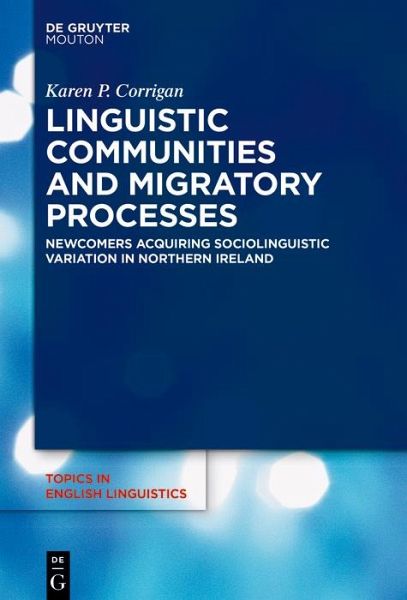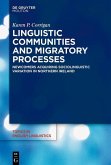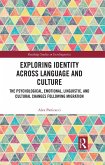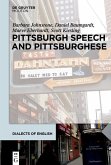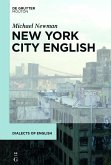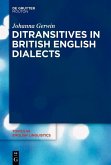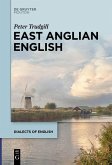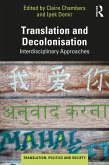This inter-disciplinary book is the first in an Irish context to address issues connected with the 'super-diversifying' of language and society engendered by recent and historical migrations. It analyses novel data from interviews with allochthonous and autochthonous groups of monolingual and plurilingual youngsters living in Northern Ireland. A key aim is to test models within second language acquisition and language variation and change research. Another goal is to examine the extent to which distinctive migratory trends generated changes in the language ecologies of communities on the island of Ireland as well as globally in regions where the Irish settled intensively from the 1700s. The book also compares contemporary migratory experiences with historical records to further our understanding of the dynamics of identification through language across time. The first-ever book devoted to all aspects of the sociolinguistics of globalization and migration in Northern Ireland will be welcomed by scholars interested in the consequences for ethnolinguistic vitality of large-scale population movements. It could not be more timely given the fact that 2.5 million sought asylum in Europe alone during 2016, greatly enhancing its diversity.
Dieser Download kann aus rechtlichen Gründen nur mit Rechnungsadresse in A, B, BG, CY, CZ, D, DK, EW, E, FIN, F, GR, HR, H, IRL, I, LT, L, LR, M, NL, PL, P, R, S, SLO, SK ausgeliefert werden.
Endorsement
In today's mobile world, foreign accents are everywhere and they can tell us a great deal about human conditions and social situations. In this book, Corrigan masterfully details the complex facets of the language contact situation in Northern Ireland, focussing on the contrast between teens of local Irish origin and newcomer teens of Lithuanian and Polish descent. Using a novel "fourth wave approach" with a "lens that is also attuned to various subdisciplines of linguistics (formal and variationist as well as functional, historical and typological)" (p. 328) Corrigan's analyses and lucid insider interpretations resound with insight, offering anyone with a curiosity about language, a window on the increasingly diverse multilingual communities of our modern world.
Sali A. Tagliamonte, Professor at University of Toronto (September 2020)
The author has produced an extremely well researched and clearly argued interdisciplinary work which makes use of historical, social and linguistic models and perspectives. Her primary focus is on the linguistic consequences of migration, with particular reference to speakers in three locations in Northern Ireland. This book provides an excellent resource for students and researchers with an interest in the social and historical contexts which shape language variation and change - in the broadest sense of these terms. It is also characterised by methodological care and sophistication. The author makes use of a variety of corpora and databases, as well as contemporary recordings of everyday spoken language. She has provided us with an excellent example of the virtues of interdisciplinary perspectives for socio- and historical linguists who aspire to an understanding of the processes they seek to explain.
Lesley Milroy, Professor Emerita at University of Michigan (September 2020)
This interdisciplinary account of migration to and from Northern Ireland is a major achievement, documenting the impact on the linguistic ecologies of both the receiving and sending countries, from the moderate linguistic diversity of Stone Age times to the superdiverse multicultural polylingualism of urban centres today. Detailed linguistic analyses make invaluable contributions to theories of language acquisition and language contact, and address foundational issues in our understanding of how migrants acquire sociolinguistic variation. Beautifully written and enlivened throughout with extracts from letters and interviews with migrants, ancient maps and more, this book is a gem!
Jenny Cheshire, Professor of Linguistics at Queen Mary University of London (September 2020)
In today's mobile world, foreign accents are everywhere and they can tell us a great deal about human conditions and social situations. In this book, Corrigan masterfully details the complex facets of the language contact situation in Northern Ireland, focussing on the contrast between teens of local Irish origin and newcomer teens of Lithuanian and Polish descent. Using a novel "fourth wave approach" with a "lens that is also attuned to various subdisciplines of linguistics (formal and variationist as well as functional, historical and typological)" (p. 328) Corrigan's analyses and lucid insider interpretations resound with insight, offering anyone with a curiosity about language, a window on the increasingly diverse multilingual communities of our modern world.
Sali A. Tagliamonte, Professor at University of Toronto (September 2020)
The author has produced an extremely well researched and clearly argued interdisciplinary work which makes use of historical, social and linguistic models and perspectives. Her primary focus is on the linguistic consequences of migration, with particular reference to speakers in three locations in Northern Ireland. This book provides an excellent resource for students and researchers with an interest in the social and historical contexts which shape language variation and change - in the broadest sense of these terms. It is also characterised by methodological care and sophistication. The author makes use of a variety of corpora and databases, as well as contemporary recordings of everyday spoken language. She has provided us with an excellent example of the virtues of interdisciplinary perspectives for socio- and historical linguists who aspire to an understanding of the processes they seek to explain.
Lesley Milroy, Professor Emerita at University of Michigan (September 2020)
This interdisciplinary account of migration to and from Northern Ireland is a major achievement, documenting the impact on the linguistic ecologies of both the receiving and sending countries, from the moderate linguistic diversity of Stone Age times to the superdiverse multicultural polylingualism of urban centres today. Detailed linguistic analyses make invaluable contributions to theories of language acquisition and language contact, and address foundational issues in our understanding of how migrants acquire sociolinguistic variation. Beautifully written and enlivened throughout with extracts from letters and interviews with migrants, ancient maps and more, this book is a gem!
Jenny Cheshire, Professor of Linguistics at Queen Mary University of London (September 2020)
Endorsement
In today's mobile world, foreign accents are everywhere and they can tell us a great deal about human conditions and social situations. In this book, Corrigan masterfully details the complex facets of the language contact situation in Northern Ireland, focussing on the contrast between teens of local Irish origin and newcomer teens of Lithuanian and Polish descent. Using a novel "fourth wave approach" with a "lens that is also attuned to various subdisciplines of linguistics (formal and variationist as well as functional, historical and typological)" (p. 328) Corrigan's analyses and lucid insider interpretations resound with insight, offering anyone with a curiosity about language, a window on the increasingly diverse multilingual communities of our modern world.
Sali A. Tagliamonte, Professor at University of Toronto (September 2020)
The author has produced an extremely well researched and clearly argued interdisciplinary work which makes use of historical, social and linguistic models and perspectives. Her primary focus is on the linguistic consequences of migration, with particular reference to speakers in three locations in Northern Ireland. This book provides an excellent resource for students and researchers with an interest in the social and historical contexts which shape language variation and change - in the broadest sense of these terms. It is also characterised by methodological care and sophistication. The author makes use of a variety of corpora and databases, as well as contemporary recordings of everyday spoken language. She has provided us with an excellent example of the virtues of interdisciplinary perspectives for socio- and historical linguists who aspire to an understanding of the processes they seek to explain.
Lesley Milroy, Professor Emerita at University of Michigan (September 2020)
This interdisciplinary account of migration to and from Northern Ireland is a major achievement, documenting the impact on the linguistic ecologies of both the receiving and sending countries, from the moderate linguistic diversity of Stone Age times to the superdiverse multicultural polylingualism of urban centres today. Detailed linguistic analyses make invaluable contributions to theories of language acquisition and language contact, and address foundational issues in our understanding of how migrants acquire sociolinguistic variation. Beautifully written and enlivened throughout with extracts from letters and interviews with migrants, ancient maps and more, this book is a gem!
Jenny Cheshire, Professor of Linguistics at Queen Mary University of London (September 2020)
In today's mobile world, foreign accents are everywhere and they can tell us a great deal about human conditions and social situations. In this book, Corrigan masterfully details the complex facets of the language contact situation in Northern Ireland, focussing on the contrast between teens of local Irish origin and newcomer teens of Lithuanian and Polish descent. Using a novel "fourth wave approach" with a "lens that is also attuned to various subdisciplines of linguistics (formal and variationist as well as functional, historical and typological)" (p. 328) Corrigan's analyses and lucid insider interpretations resound with insight, offering anyone with a curiosity about language, a window on the increasingly diverse multilingual communities of our modern world.
Sali A. Tagliamonte, Professor at University of Toronto (September 2020)
The author has produced an extremely well researched and clearly argued interdisciplinary work which makes use of historical, social and linguistic models and perspectives. Her primary focus is on the linguistic consequences of migration, with particular reference to speakers in three locations in Northern Ireland. This book provides an excellent resource for students and researchers with an interest in the social and historical contexts which shape language variation and change - in the broadest sense of these terms. It is also characterised by methodological care and sophistication. The author makes use of a variety of corpora and databases, as well as contemporary recordings of everyday spoken language. She has provided us with an excellent example of the virtues of interdisciplinary perspectives for socio- and historical linguists who aspire to an understanding of the processes they seek to explain.
Lesley Milroy, Professor Emerita at University of Michigan (September 2020)
This interdisciplinary account of migration to and from Northern Ireland is a major achievement, documenting the impact on the linguistic ecologies of both the receiving and sending countries, from the moderate linguistic diversity of Stone Age times to the superdiverse multicultural polylingualism of urban centres today. Detailed linguistic analyses make invaluable contributions to theories of language acquisition and language contact, and address foundational issues in our understanding of how migrants acquire sociolinguistic variation. Beautifully written and enlivened throughout with extracts from letters and interviews with migrants, ancient maps and more, this book is a gem!
Jenny Cheshire, Professor of Linguistics at Queen Mary University of London (September 2020)

